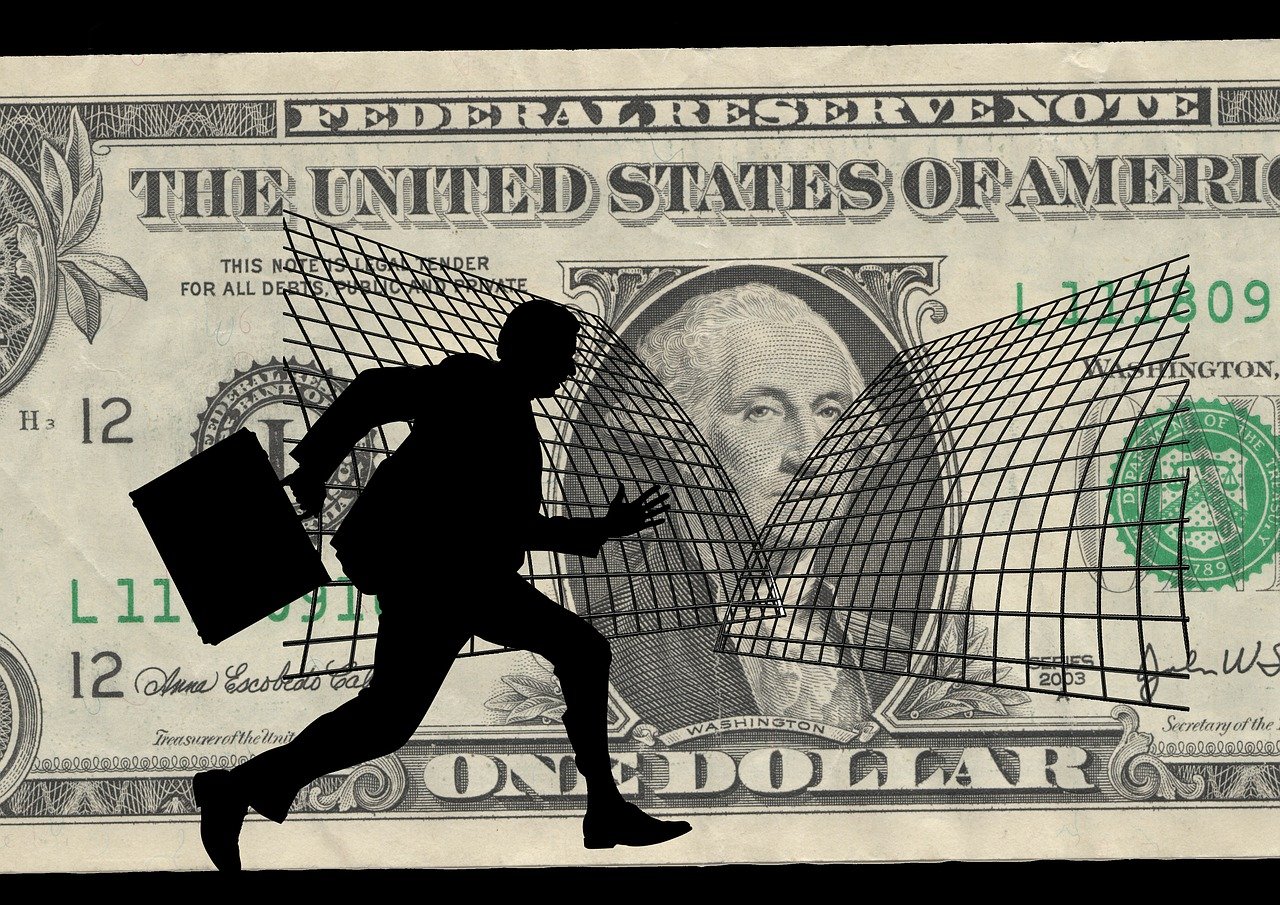Exploring the Difference Between Tax Evasion And Tax Avoidance
Oct 11, 2023 By Susan Kelly
Taxes are a part of our lives, like it or not. They fund essential government services like schools, hospitals, and roads. But sometimes, people try to find ways to pay less in taxes. Therefore, it is crucial to understand and ensure compliance with the particular rules and regulations in your jurisdiction. Consult a qualified tax professional to get personalized advice tailored to your circumstances.
Two standard terms you might have heard are "Tax Evasion" and "Tax Avoidance." Understanding the difference between these two is crucial. While it is natural to want to pay as little tax as possible, staying on the right side of the law is essential. Tax Evasion can lead to severe legal consequences, including fines, criminal charges, and the loss of assets. In contrast, when done legally, Tax Avoidance can help you keep more of your hard-earned money without risking legal troubles.
Let's explore the difference between these two.
Tax Evasion
Tax Evasion is like trying to hide your income or lie about it to pay fewer taxes by concealing income or fraud. It is illegal and can get you into a lot of trouble. Imagine if you had a lemonade stand but did not tell the government about the money you made from selling lemonade. That would be like Tax Evasion.

Examples of Tax Evasion
Underreporting Income: If you earned $1,000 from your job or business but only told the government you made $100, that's Tax Evasion.
- Hiding Money: Some people hide money in secret bank accounts in other countries to avoid paying taxes.
- Phony Deductions: Making up fake deductions to reduce taxable income is Tax Evasion. It is like saying you spent a million dollars on buying assets when you did not.
- Not Filing Taxes: If you are supposed to file taxes but do not file, that is also Tax Evasion.
Tax Avoidance
Tax Avoidance differs from evasion. It is like finding legal ways to pay less in taxes. It is acceptable as long as you are following the tax rules. Think of it as using coupons to save money when you shop.

Examples of Tax Avoidance
Let’s have a look at examples!
- Claiming Deductions: When you own a home, you can usually deduct the interest you pay on your debt from the taxable income. It is one of the legal ways of paying less tax.
- Investing in Tax-Favored Accounts: Some accounts, like a 401(k) for retirement or an HSA for healthcare, allow you to save money without paying as much in taxes.
- Charitable Giving: Donating money to charities can also lower your taxable income.
- Business Expenses: You can also deduct legal expenses related to your business from your income.
Differences Between Tax Evasion & Tax Avoidance
Following are the key differences between Tax Evasion and Tax Avoidance:
- Legality: The most significant difference is that Tax Evasion is not legal, and Tax Avoidance is legal. One can land you in jail, and the other can save you money.
- Intent: Tax Evasion involves knowingly deceiving the government, while Tax Avoidance is about taking advantage of tax laws within their intended purpose.
- Concealment: In Tax Evasion, you actively hide income or create fake deductions, whereas Tax Avoidance involves using legal methods to reduce your Tax liability.
- Penalties: If you get caught evading taxes, you may face criminal charges, fines, or even imprisonment. Tax Avoidance may result in penalties or back taxes but generally does not lead to criminal prosecution.
- Complexity: Tax Evasion usually requires more deception and illegal actions, making it riskier. Tax Avoidance is often based on understanding tax laws and regulations clearly.
Consequences of Tax Evasion & Tax Avoidance
This section unveils consequences of Tax Evasion and Tax Avoidance. Let’s have a look!
Tax Evasion Consequences
Tax Evasion can lead to severe consequences, including:
- Fines: You may have to pay hefty fines, which can be much more than the taxes you owed initially.
- Criminal Charges: Tax Evasion can lead to criminal charges; if convicted, you could face imprisonment.
- Loss of Assets: The government can seize your assets to cover the unpaid taxes and penalties.
- Damage to Reputation: Being charged with Tax Evasion can cause harm to your reputation and make it harder to get loans or secure jobs.
Tax Avoidance Consequences
Tax Avoidance, when done legally, has fewer harsh consequences:
- Penalties: You might have to pay penalties or interest on unpaid taxes if the IRS determines that you crossed the line between avoidance and evasion.
- Additional Taxes: In some cases, the IRS may require you to pay the taxes you attempted to avoid through legal methods.
- Scrutiny: Engaging in aggressive Tax Avoidance could also result in closer IRS scrutiny in the future.
Preventing Tax Evasion and Tax Avoidance is essential for maintaining a fair and functioning tax system that funds public services and infrastructure. While individuals have limited control over tax laws and regulations, they can take steps to ensure they comply with tax laws and avoid engaging in practices that might be considered evasion or aggressive avoidance.
Conclusion
In summary, Tax Evasion and Tax Avoidance are different approaches to managing your tax bill. Tax Evasion is illegal and involves hiding income or creating false deductions to pay less tax. On the other hand, Tax Avoidance is legal and involves using strategies within the boundaries of the tax law to reduce your Tax liability.
So, the next time you think about your taxes, remember that there are legal ways to reduce your tax bill. Seek advice from tax professionals if you are unsure about your tax strategies, and always stay on the right side of the law when managing your taxes.
-
 Taxes Jan 05, 2024
Taxes Jan 05, 2024Wash sales: The ATO is cleaning up dirty laundry
Wash sales are coming under strict scrutiny by the Australian Taxation Office (ATO). The phrase "The ATO is cleaning up dirty laundry" signifies the ATO's intensified efforts to curb the practice of wash sales, a tactic wherein investors sell securities at a loss and repurchase the same or similar ones within a 30-day bracket to dodge tax liabilities.
-
 Know-how Nov 27, 2023
Know-how Nov 27, 2023How to Make Money on Fiverr
If you're looking for a way to make fast cash, this guide is perfect for getting started! From setting up an account and finding gigs, learn how to succeed and earn money with Fiverr today.
-
 Investment Nov 29, 2023
Investment Nov 29, 2023Investing In Real Estate VS Stocks: Making the Right Choice
Discover the advantages and drawbacks of investing in real estate and stocks. Make informed decisions by understanding key differences and market conditions.
-
 Currency Sep 20, 2024
Currency Sep 20, 2024Using Moving Averages: EMA Indicator Guide for Effective Trading
The EMA is also known as the Exponential Moving Average. The ema indicator emphasizes current prices and makes them more sensitive.
